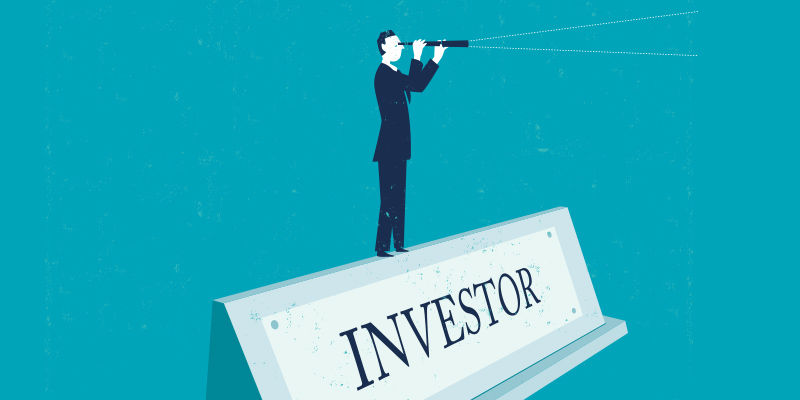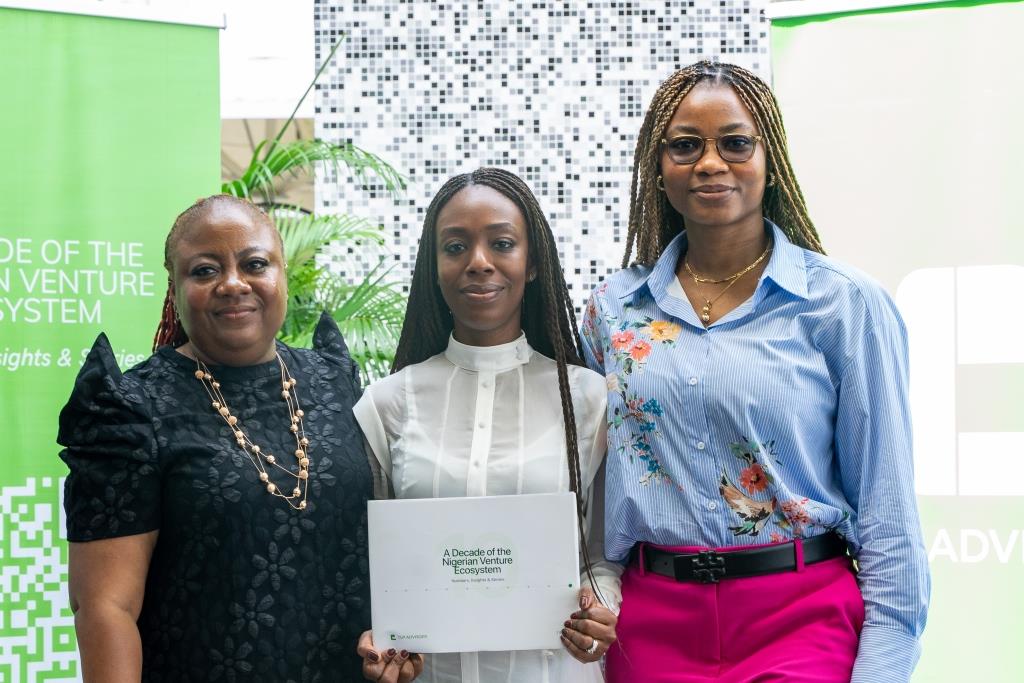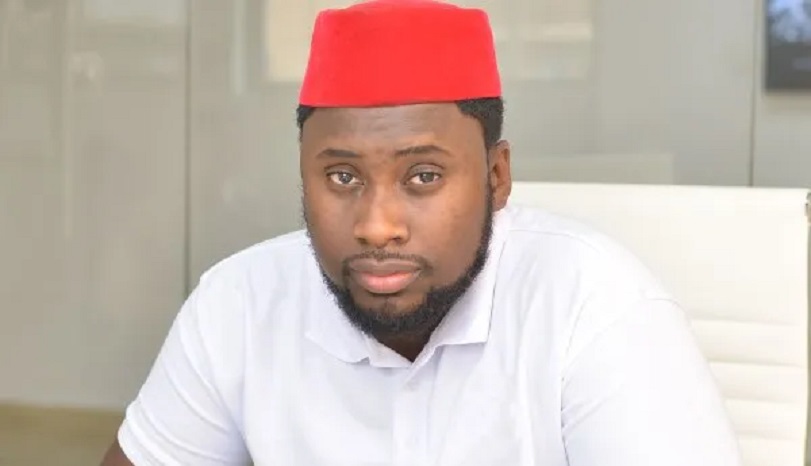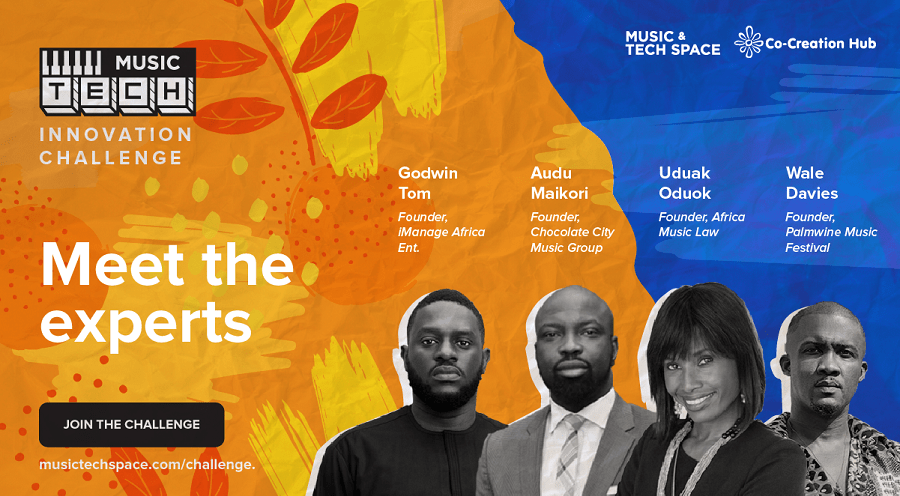Technology
Facebook, CcHub Launch Africa’s First Hub Space in Lagos
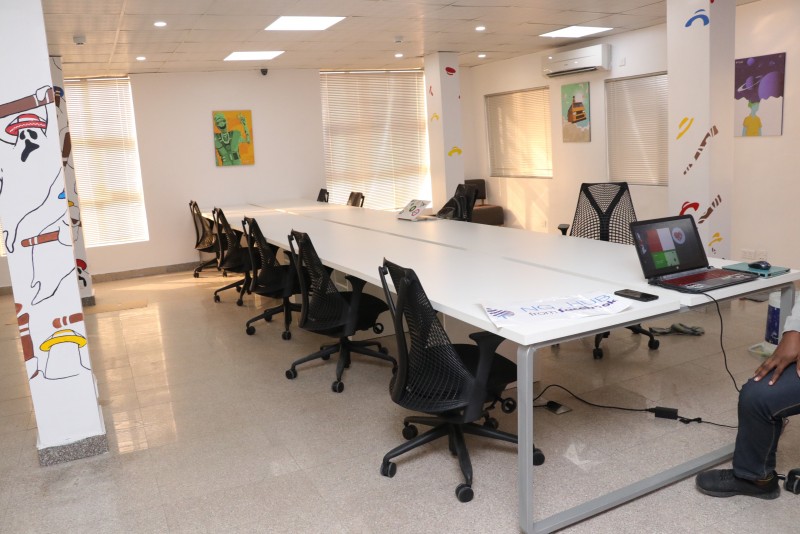
By Dipo Olowookere
As part of its commitment and ongoing investment in Africa, Facebook has unveiled in Lagos its first flagship community hub space called NG_Hub.
This initiative was put in place by Facebook in partnership with CcHub.
In a week-long celebration which will bring together developers, start-ups, and the wider tech community across Lagos and Nigeria, the launch will showcase the new multi-faceted space which aims to bring together communities to collaborate, learn, and exchange ideas.
With creativity and excellence existing across all of Nigeria, Facebook also announced partnerships with seven other hubs across the country including in Abuja (Ventures Platform), Jos (nHub), Kaduna (Colab Hub), Kano (DI Hub), Uyo (Start Innovation Hub), Enugu (Roar Hub) and Port Harcourt (Ken Saro Wiwa Hub).
These will serve as centres of excellence and will feature dedicated Facebook spaces, where many of Facebook’s training sessions will take place, and a space where creatives and developers can book to help them advance their skills.
Featuring bespoke works of art from local artists in Nigeria, the NG_Hub space, which includes workspaces, meeting rooms, games and chill out room, an event space and a well catered café, will also be the focal point for a number of training programmes.
Aimed at attracting the best talent and driving innovation in Nigeria’s tech ecosystem, these are all designed to equip Nigerian SMEs, tech entrepreneurs and the next generation of leaders to better understand and utilise the power of digital tools for economic growth.
Training programmes include the Fb Start Accelerator programme, a research and mentorship-driven programme aimed at empowering start-ups and students with technical & business support and funding to optimize their product for growth–focused on those building solutions using advanced technology, with a focus on Artificial Intelligence (AI), Machine Learning, Augmented Reality (AR) and Virtual Reality (VR); and Digify Pro Nigeria, a two-month intensive boot camp where 20 aspiring digital professionals will learn what it takes to have a career in digital marketing. The programme is designed to fit the specific needs of industry, covering a range of topics including community management, content and e-mail marketing, brand online reputation management, UX design and more.
Also is the Boost Your Business, which was made especially for micro, small and medium sized businesses owners, Boost Your Business is a one-day training that teaches digital marketing for business growth.
Another programme is the #SheMeansBusiness, the first to launch on the continent, #SheMeansBusiness is a one-day training workshop and networking experience for female entrepreneurs, offering a mix of business and digital marketing training for women led businesses, along with additional opportunities to network with fellow female entrepreneurs.
Speaking on the development, Facebook’s Vice President of Partnerships, Ime Archibong, stated that, “Technology provides expansive opportunities to engage young, creative and resourceful Nigerians, especially in delivering solutions to challenges across communities here in Nigeria.
“Our mission is to build community and bring the world closer together, NG_Hub provides that physical space that will serve as a centre of learning and skills development in Lagos, and I’m excited about the possibilities that this will create.”
Also commenting on the partnership, Founder/CEO of CcHub, Mr Bosun Tijani, added that, “Our aim has always been to provide a viable platform for creatives and innovators to express their talent and create solutions to the myriad of social and economic challenges faced by countries across the continent.
“Partnering with Facebook on NG_Hub enables us to achieve our objectives at scale and make the desired impact in the tech ecosystem here in Lagos.”
As part of a week-long of celebrations, Facebook will host a number of events from May 21 – 25, 2018 aimed at engaging the different communities in Lagos, and across Nigeria.
This includes community roundtable aimed at bringing together Community Groups from across Lagos; DevC meetup – with Nigeria being home to the largest number of Developer Circles across Sub-Saharan Africa (over 8,800), this event will bring together DevC members in an afternoon of networking; VC & Policy Roundtable – aimed at spearheading vital conversations and helping to bridge the gap between tech entrepreneurs and VCs and policy makers in Nigeria; She Means Business/Women in Tech – a special SheMeansBusiness training offered especially for female entrepreneurs working in Lagos’ technology ecosystem; SMB Boost Your Business Training – a four-hour training session for SMBs aimed at equipping them with vital digital skills to help grow their businesses; Facebook and Instagram for Creatives – an inspirational hands-on session led by Creative Shop for Creatives building for Facebook and Instagram; and Fintech SMB Training – a training session for SMBs in Fintech.
“The NG_Hub highlights our ongoing commitment to supporting local talent in Nigeria. We’re delighted to be partnering with CcHub here in Lagos, as well as with many other hubs across Nigeria to deepen our engagement, increase skills development and support the next set of innovators, tech entrepreneurs, start-ups, and others in our collective bid to change the face of technology and grow the economy,” said Ebele Okobi, Director of Public Policy, Africa.
Technology
Expert Reveals Top Cyber Threats Organisations Will Encounter in 2026

By Adedapo Adesanya
Organisations in 2026 face a cybersecurity landscape markedly different from previous years, driven by rapid artificial intelligence adoption, entrenched remote work models, and increasingly interconnected digital systems, with experts warning that these shifts have expanded attack surfaces faster than many security teams can effectively monitor.
According to the World Economic Forum’s Global Cybersecurity Outlook 2026, AI-related vulnerabilities now rank among the most urgent concerns, with 87 per cent of cybersecurity professionals worldwide highlighting them as a top risk.
In a note shared with Business Post, Mr Danny Mitchell, Cybersecurity Writer at Heimdal, said artificial intelligence presents a “category shift” in cyber risk.
“Attackers are manipulating the logic systems that increasingly run critical business processes,” he explained, noting that AI models controlling loan decisions or infrastructure have become high-value targets. Machine learning systems can be poisoned with corrupted training data or manipulated through adversarial inputs, often without immediate detection.
Mr Mitchell also warned that AI-powered phishing and fraud are growing more sophisticated. Deepfake technology and advanced language models now produce convincing emails, voice calls and videos that evade traditional detection.
“The sophistication of modern phishing means organisations can no longer rely solely on employee awareness training,” he said, urging multi-channel verification for sensitive transactions.
Supply chain vulnerabilities remain another major threat. Modern software ecosystems rely on numerous vendors and open-source components, each representing a potential entry point.
“Most organisations lack complete visibility into their software supply chain,” Mr Mitchell said, adding that attackers frequently exploit trusted vendors or update mechanisms to bypass perimeter defences.
Meanwhile, unpatched software vulnerabilities continue to expose organisations to risk, as attackers use automated tools to scan for weaknesses within hours of public disclosure. Legacy systems and critical infrastructure are especially difficult to secure.
Ransomware operations have also evolved, with criminals spending weeks inside networks before launching attacks.
“Modern ransomware operations function like businesses,” Mitchell observed, employing double extortion tactics to maximise pressure on victims.
Mr Mitchell concluded that the common thread across 2026 threats is complexity, noting that organisations need to abandon the idea that they can defend against everything equally, as this approach spreads resources too thin and leaves critical assets exposed.
“You cannot protect what you don’t know exists,” he said, urging organisations to prioritise visibility, map dependencies, and focus resources on the most critical assets.
Technology
NCC Begins Review of National Telecommunications Policy After 26 Years

By Adedapo Adesanya
In a consultation paper released to the public, the commission said it is seeking input from stakeholders, including telecom operators, tech companies, legal experts, and the general public, on proposed revisions designed to reposition Nigeria’s telecommunications framework to match current digital demands. Submissions are expected by March 20, 2026.
The NTP 2000 marked a turning point in Nigeria’s telecom landscape. It replaced the 1998 policy, introducing full liberalisation and a unified regulatory framework under the NCC, and paved the way for the licensing of GSM operators such as MTN, Econet (now Airtel), and Globacom in 2001 and 2002.
Prior to the NTP, the sector was dominated by Nigerian Telecommunications Limited (NITEL), a government-owned monopoly plagued by obsolete equipment, low teledensity, and poor service. At the time, Nigeria had fewer than 400,000 telephone lines for the entire country.
However, the NCC noted that just as the 1998 policy was overtaken by global developments, the 2000 framework has become structurally misaligned with today’s telecom reality, which encompasses broadband, 5G networks, satellite internet, artificial intelligence, and a thriving digital economy worth billions of dollars.
“The rapid pace of technological change and emerging digital services necessitate a comprehensive update to ensure the policy continues to support economic growth while protecting critical infrastructure,” the Commission stated.
The review will target multiple chapters of the policy. Key revisions include: Enhancements on online safety, content moderation, digital services regulation, and improved internet exchange protocols; a modern framework for satellite harmonisation, coexistence with terrestrial networks, and clearer spectrum allocation to boost service quality, and policies to address fiscal support, reduce multiple taxation, and lower operational costs for operators.
The NCC is also proposing entirely new sections to the policy to address emerging priorities. Among the key initiatives are clear broadband objectives aimed at achieving 70 per cent national broadband penetration, with a focus on extending connectivity beyond urban centres to reach rural communities.
The review also seeks to formally recognise telecom infrastructure, including fibre optic cables and network masts, as Critical National Infrastructure to prevent vandalism and enhance security.
In addition, the commission is targeting the harmonisation of Right-of-Way charges across federal, state, and local governments, alongside the introduction of a one-stop permitting process for telecom deployment, designed to reduce bureaucratic delays and lower operational costs for operators.
According to the NCC, the review aims to make fast and affordable internet widely accessible. “The old framework was largely voice-centric. Today, data is the currency of the digital economy,” the commission said, highlighting the need to close the urban-rural broadband divide.
The consultation process is intended to gather diverse perspectives to ensure the updated policy reflects current technological trends, market realities, and consumer needs. By doing so, the NCC hopes to maintain the telecommunications sector’s role as a key driver of economic growth and digital inclusion.
Technology
FG to Scrutinise MTN’s $2.2bn Full Take Over of IHS Towers

By Adedapo Adesanya
The Minister of Communications, Innovation and Digital Economy, Mr Bosun Tijani, says the Nigerian government is assessing MTN Group’s acquisition of IHS Towers to ensure the deal aligns with Nigeria’s telecommunications development goals.
On Tuesday, MTN Group said it has agreed to acquire the remaining 75.3 per cent stake in IHS Holding Limited in an all-cash deal valued at $2.2 billion. The deal will be funded through the rollover of MTN’s existing stake of around 24 per cent in IHS, as well as about $1.1 billion in cash from MTN, roughly $1.1 billion from IHS’s balance sheet, and the rollover of no more than existing IHS debt.
Mr Tijani, in a statement, said the administration of President Bola Tinubu has spent the past two years strengthening the telecom sector through policy clarity, regulatory support, and engagement with industry stakeholders, boosting investor confidence and sector performance.
“Recent financial results from key operators show improved profitability, increased investment in telecoms infrastructure, and operational stability across the sector,” he said.
“These gains reflect the resilience of the industry and the impact of government reforms.”
The minister added that telecommunications infrastructure is critical for national security, economic growth, financial services, innovation, and social inclusion.
“We will undertake a thorough assessment of this development with relevant regulatory authorities to review its impact on the sector,” Mr Tijani said.
He added that the review aims to ensure market consolidation or structural changes, protect consumers, safeguard investments, and preserve the long-term sustainability of the telecom industry.
Mr Tijani also said the government remains committed to maintaining a stable and forward-looking policy environment to keep Nigeria’s telecommunications sector strong and sustainable, in line with the administration’s broader digital economy vision.
Upon completion, the transaction will see MTN transition from being a minority shareholder in IHS to a full owner. It will also see IHS exit from the New York Stock Exchange and become a wholly owned subsidiary of MTN.
For MTN, the deal represents a decisive shift as data demand surges and digital infrastructure becomes increasingly strategic with a booming digitally-oriented youth population on the continent.
-

 Feature/OPED6 years ago
Feature/OPED6 years agoDavos was Different this year
-
Travel/Tourism10 years ago
Lagos Seals Western Lodge Hotel In Ikorodu
-

 Showbiz3 years ago
Showbiz3 years agoEstranged Lover Releases Videos of Empress Njamah Bathing
-

 Banking8 years ago
Banking8 years agoSort Codes of GTBank Branches in Nigeria
-

 Economy3 years ago
Economy3 years agoSubsidy Removal: CNG at N130 Per Litre Cheaper Than Petrol—IPMAN
-

 Banking3 years ago
Banking3 years agoSort Codes of UBA Branches in Nigeria
-

 Banking3 years ago
Banking3 years agoFirst Bank Announces Planned Downtime
-

 Sports3 years ago
Sports3 years agoHighest Paid Nigerian Footballer – How Much Do Nigerian Footballers Earn


